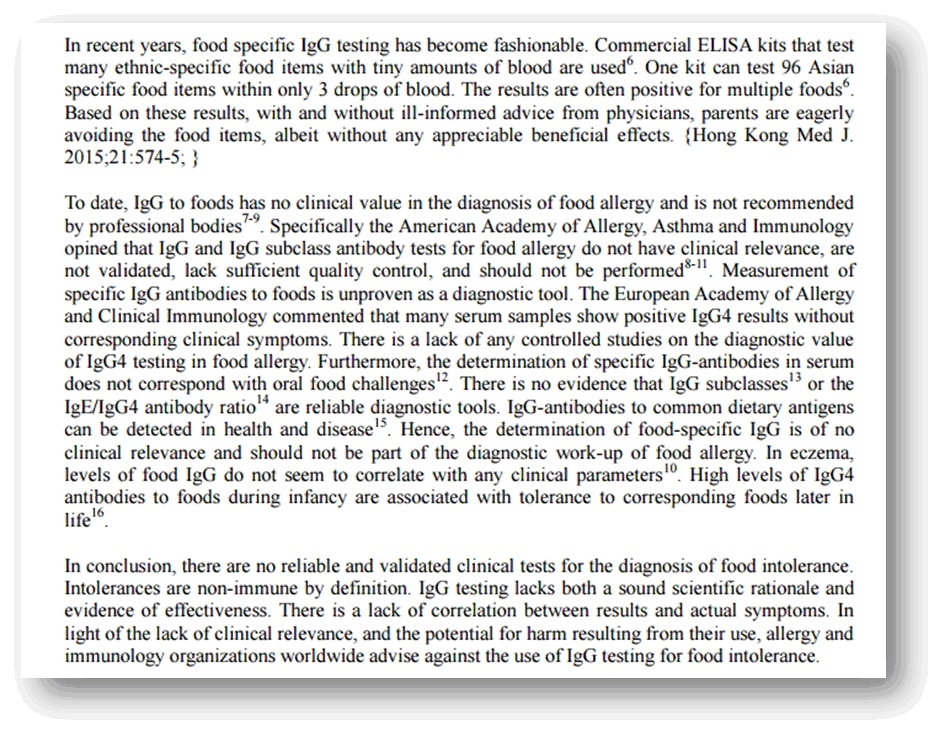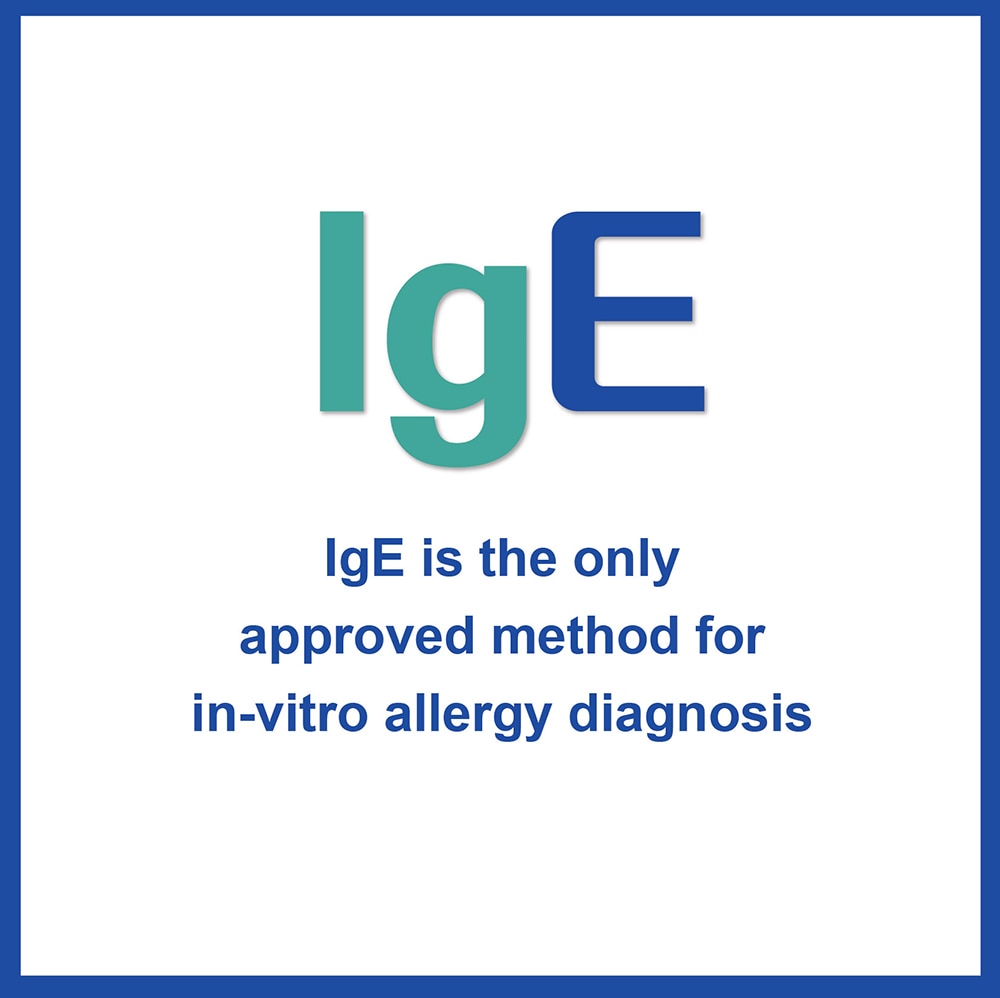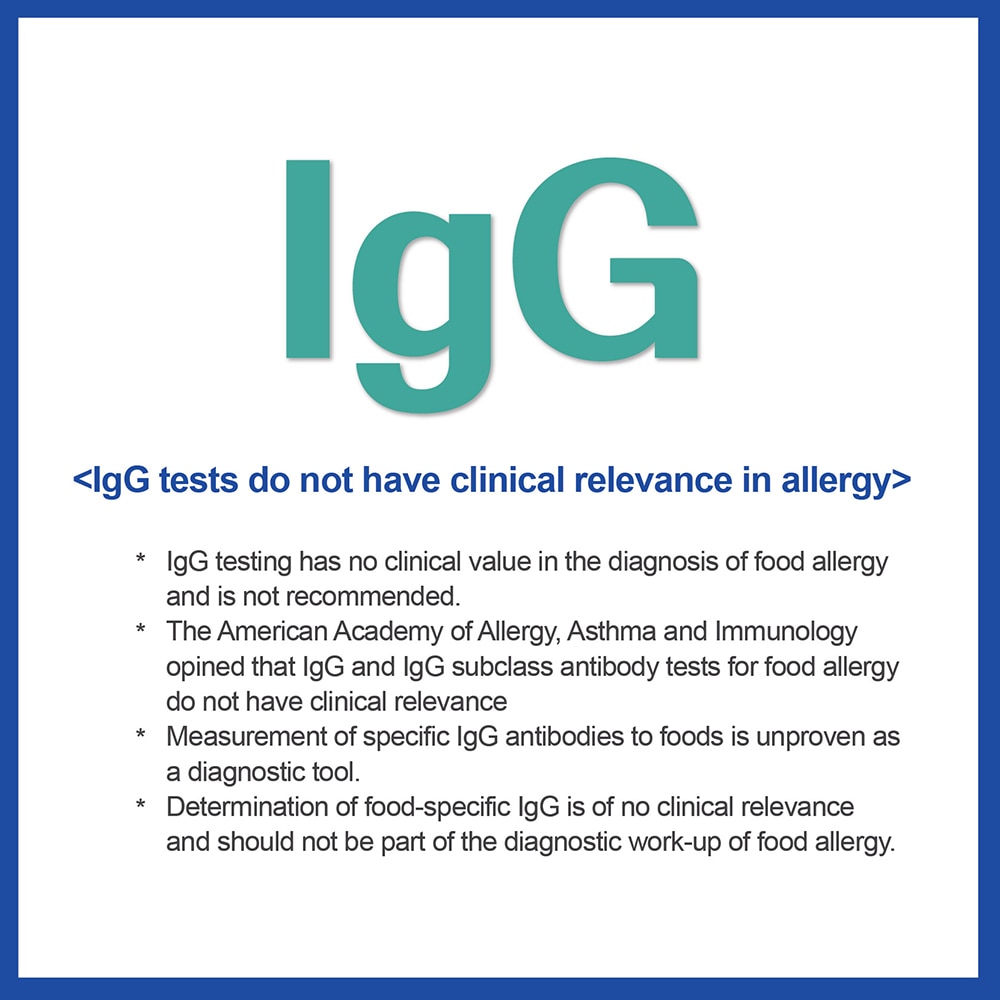IgE test is the ONLY acceptable Diagnostic test for Allergic patients
Please see the summary of the latest guidelines of The Hong Kong Institute of Allergy concerning “in-vitro” allergy tests.
IgE Allergy Test
- The causative allergens in IgE-mediated diseases (type I allergy) can be determined in the laboratory by serum specific IgE tests.
- Positive results of allergen-specific IgE by blood tests must be correlated with symptoms.
- The causative agents of anaphylaxis are investigated by IgE blood tests.
IgG tests DO NOT have clinical relevance in allergy
- IgG to foods has no clinical value in the diagnosis of food allergy and is not recommended by professional bodies
- The American Academy of Allergy, Asthma and Immunology opined that IgG and IgG subclass antibody tests for food allergy do not have clinical relevance, are not validated, lack sufficient quality control, and should not be performed
- Measurement of specific IgG antibodies to foods is unproven as a diagnostic tool.
- The European Academy of Allergy and Clinical Immunology commented that many serum samples show positive IgG4 results without corresponding clinical symptoms.
- There is a lack of any controlled studies on the diagnostic value of IgG4 testing in food allergy. Furthermore, the determination of specific IgG-antibodies in serum does not correspond with oral food challenges.
- Determination of food-specific IgG is of no clinical relevance and should not be part of the diagnostic work-up of food allergy.
- In eczema, levels of food IgG do not seem to correlate with any clinical parameters
- In conclusion, there are no reliable and validated clinical tests for the diagnosis of food intolerance. Intolerances are non-immune by definition. IgG testing lacks both a sound scientific rationale and evidence of effectiveness. There is a lack of correlation between results and actual symptoms. In light of the lack of clinical relevance, and the potential for harm resulting from their use, allergy and immunology organizations worldwide advise against the use of IgG testing for food intolerance.

Reference: Guidelines on Allergy Diagnosis
Laboratories Doing Nonstandard Laboratory Tests
Click for More Details

Download